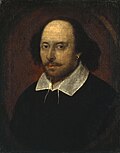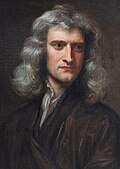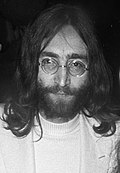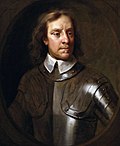Poll
This section possibly contains original research .(March 2025) |
The poll resulted in nominees including Guy Fawkes, who was executed for his role in the plot to blow up the Parliament of England; Oliver Cromwell, who created a republican British state (the Commonwealth of England, Scotland, and Ireland); Richard III, suspected of murdering his nephews; James Connolly, an Irish nationalist and socialist who was executed by the Crown due to his part in the 1916 Easter Rising; Thomas Paine, who wrote against the British crown before and during the American Revolution; John Lydon, the lead vocalist of the Sex Pistols; Enoch Powell, a conservative politician; [4] and a surprisingly high ranking[ according to whom? ] of 17th for actor and singer Michael Crawford, the second-highest-ranked entertainer, after John Lennon.
One of the more controversial figures to be included on the list was the occultist Aleister Crowley. His works had a direct influence on the rise in popular occultism and some forms of Neopaganism in the 20th century. In addition to the Britons, some notable non-British entrants were listed, including two Irish nationals, the philanthropic musicians Bono and Bob Geldof. Of the top 20 entries 16 were people of English origin. Elizabeth I was part of a Welsh royal house, Sir Ernest Shackleton and Arthur Wellesley, 1st Duke of Wellington, were both Anglo-Irish in what is now the Republic of Ireland when all of Ireland was part of the United Kingdom, and Alexander Fleming in 20th place was Scottish. [5]
Thirteen of the 100 are women. Sixty had lived in the 20th century. The highest-ranked living person was Margaret Thatcher, placed 16th. [6] Ringo Starr was the only member of the Beatles not on the list. Isambard Kingdom Brunel occupied the top spot in the polls for some time due largely to "students from Brunel University who have been campaigning vigorously for the engineer for weeks." However, a late surge in the final week of voting put Winston Churchill into first place. [7]









